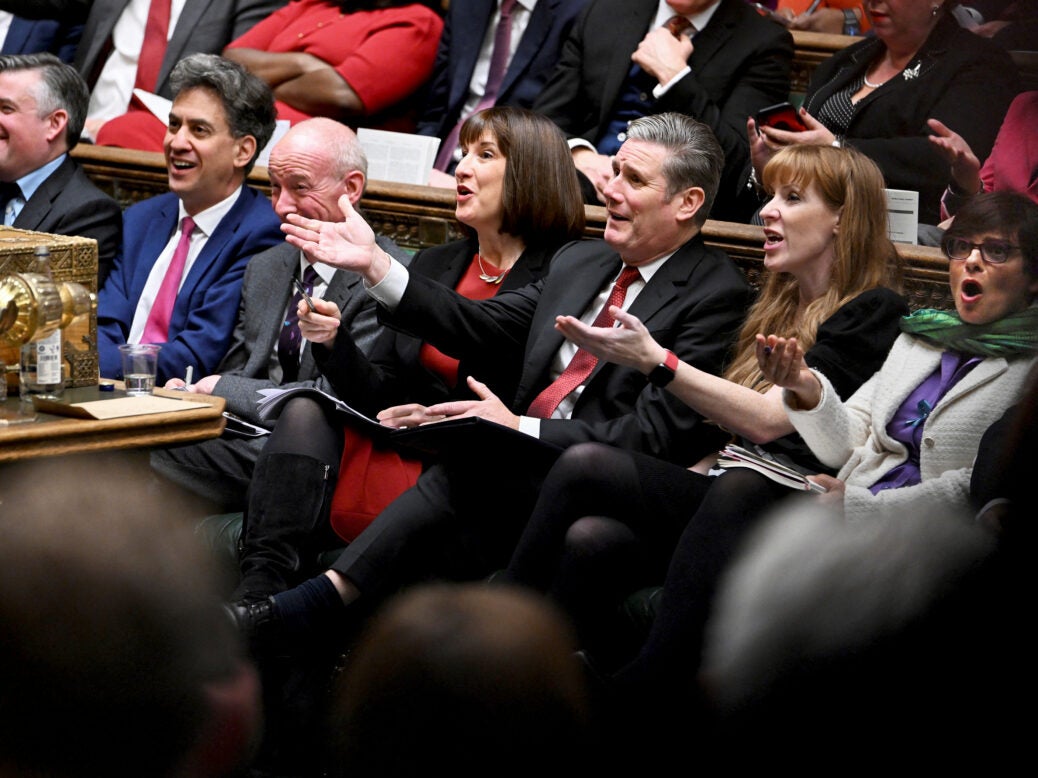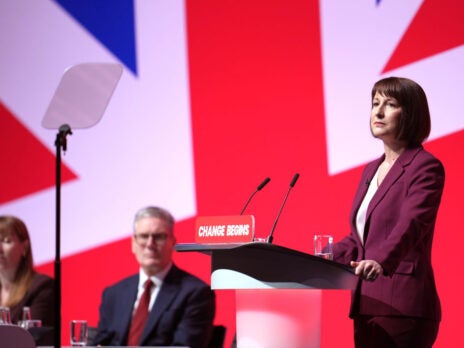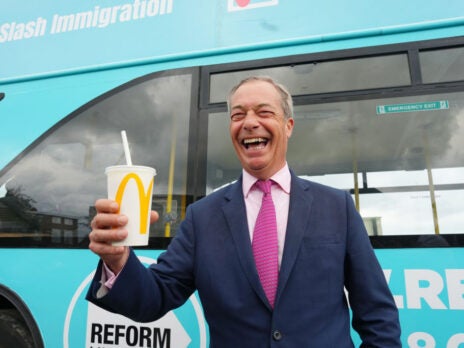
The Autumn Statement yesterday (17 November) presented Labour with an easy opportunity to attack the government. The measures represented the latest in a series of U-turns on tax and spending since Kwasi Kwarteng’s fateful “mini-Budget” on 23 September. Voters were told their taxes would rise and that eventually public spending would be squeezed. Meanwhile, the accompanying statement from the Office for Budget Responsibility (OBR) revealed that living standards are expected to fall by a record 7 per cent over the course of the next two years.
In reply, the shadow chancellor Rachel Reeves tried to pin the blame for the bad news on the Conservatives. Unsurprisingly, she pointed to the financial and political turmoil of the past two months as evidence of the Tories’ poor 12-year stewardship of the economy. She was no doubt aware that the main reason Labour’s poll lead grew from nine points before the mini-Budget to 22 points on the eve of the Autumn Statement was voters’ shock and horror at the turn of events under Liz Truss.
However, it was still an argument she needed to make. First of all, polling suggests that whatever voters think of what happened under Truss, Rishi Sunak is still associated in their minds with the effective supervision of the economy during the Covid-19 pandemic. Keir Starmer, by contrast, made his name as a lawyer, not in the world of finance. Although when Redfield & Wilton asked which party would best manage the economy, Labour was ahead of the Conservatives by 35 per cent to 29 per cent; when voters were asked which of the two leaders “can build a strong economy” Sunak led Starmer by 38 per cent to 34 per cent. Polling by YouGov points in much the same direction. Labour still needs to ensure that voters associate Sunak with the turmoil that has so badly damaged the reputation of his party.
Second, as the OBR report corroborates, the government does have a defence. Living standards are falling primarily because wages are unable to keep up with an inflationary spiral caused partly by post-Covid supply chain disruption, but above all the impact of the Ukraine war on the price of energy. Equally, the main explanation for higher government borrowing is a rise in interest rates that now has little to do with the fallout from the mini-Budget and much to do with the post-Covid global trend back towards more “normal”, higher rates.
[See also: Voters won’t tolerate austerity 2.0]
Meanwhile, the government’s response to its predicament more closely resembles Gordon Brown than George Osborne. It has tried to ensure that those at the bottom of the income distribution are protected most from the decline in living standards, while the better off are targeted for extra tax. Far from bearing down hard on the budget deficit, the government has loosened its fiscal rules and delayed most of the spending cuts until two years from now. In short, the government’s argument is that it is doing its best to respond fairly and effectively to a crisis that is not of its making.
It is perhaps not surprising then that snap polling on voter reaction to the Autumn Statement suggested bemusement. Asked by YouGov whether Jeremy Hunt’s plan would be good or bad for the economy or would effectively curb inflation, between 45 per cent and 48 per cent said that they did not know. By contrast, in a poll conducted on the day of Kwarteng’s mini-Budget, only 30 per cent felt unable to say whether his measures would be effective at growing the economy. Those who did express an opinion were inclined to think the Autumn Statement would be bad (31 per cent) rather than good (24 per cent) for the economy, but the judgement of the electorate was less adverse than in September.
Labour still has plenty of work to do to ensure that the electorate pins the blame for the state of the economy on Sunak and his government. Yesterday’s statement also presents the party with the equally important challenge of persuading voters that it could do a better job.
Firstly, any Labour government elected in 2024 is likely to find itself with little opportunity to expand the role of the state. Taxes are projected to rise to their highest level since the Second World War and public spending will remain significantly higher than before the Covid-19 pandemic. Explaining how Labour will find the money to promote its “green growth” agenda has not gotten any easier.
Secondly, the OBR report does point to one Conservative policy decision that it believes has exacerbated Britain’s economic difficulties – Brexit. Leaving the EU is said to have reduced UK trade by 15 per cent – yet at the same time it is not now expected to reduce immigration, a pivotal issue in the 2016 Leave vote. YouGov’s latest polling on the subject suggests that a record 56 per cent of people think Brexit was a mistake, while on average the polls suggest 57 per cent would now vote to rejoin. Labour is now likely to be asked to explain more fully how its proposal to renegotiate the trade agreement with the EU will help restore an economy that finds itself in intensive care.
[See also: Would a new right-wing party be a threat to the Tories?]


